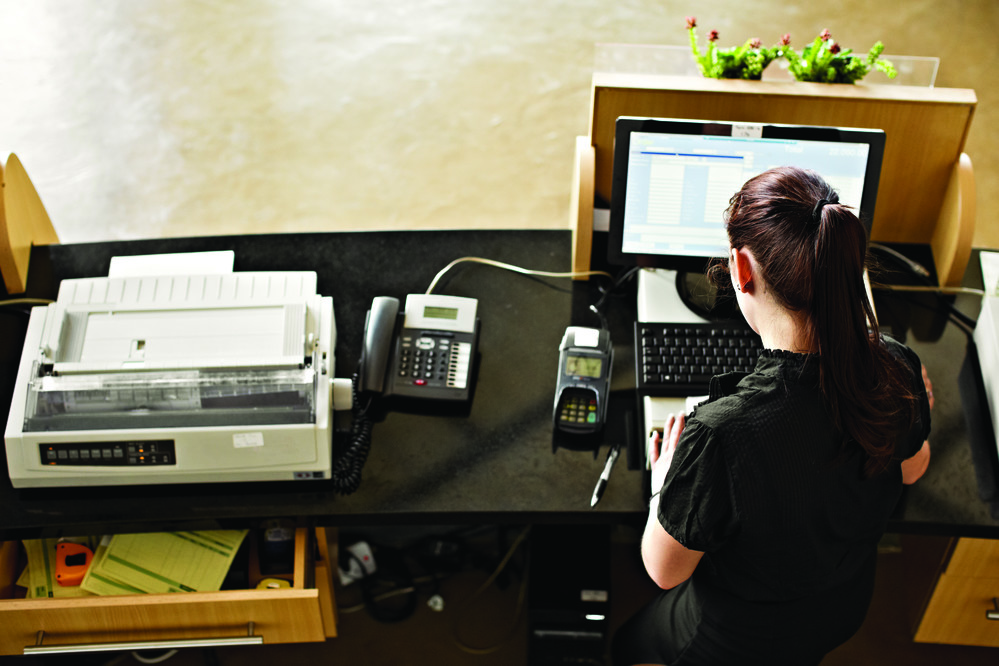Growth & Customers
9 surprising truths about workplace productivity

It’s one thing getting yourself organised and focused, but what about everyone else in the office? Here are 9 top tips to help improve workplace productivity.
1. Reduce distractions
As human beings we are wired to respond to stuff that pings. The ping that says you’ve got mail, the phone across the office buzzing, reminders, alerts, tannoy announcements, that colleague that thinks out loud all day long…
Every distraction steals a bit of our attention, focus and ability to think. One office I went to even had TV screens playing corporate adverts above the desks. A plus for corporate branding perhaps, but awful for brain power and productivity!
Consider reducing distractions: turn off pings, question if you really need to reply to all or send a global update, use break out areas or meeting rooms for louder or lengthier conversations.
2. Manage interruptions
“Is now a good time? Have you got a minute?”
Well no, not really, but you’ve got my attention now, so “Sure, how can I help?” you say.
Open offices can be great for collaboration, social interaction, building relationships and creating an energising buzz to work in, but they can also be the number 1 killer of focused attention.
The problem is, there’s no easy way to tell whether it’s a good time or not. Unless you’ve mastered the ‘do not disturb’ glare – but even then, you still need to spot them coming.
Consider using a ‘do not disturb’ signal for those times when you really need to get your head down and focus. Think Productive’s COO Elena has a china cat that goes on her desk when she needs to have some interrupted time to herself.
3. Use stealth and camouflage
You could also do some tactical hiding – book yourself into a meeting room, work from home, or in a different location when you need to be less available.
If you’re going to disappear for a while though, you might want to communicate this so everyone knows what to expect. Chief Ninja Graham Allcott, once sent us an email to tell us that he was going to be ‘off the grid’ for a week to write his book. Instead of just disappearing off the face of the earth, he gave us advance notice and made himself available the week beforehand, so if there was anything we needed to talk about, we could raise it before he disappeared.
4. Be proactive with your availability
June Dennis, Associate Dean at Wolverhampton University schedules ‘afternoon tea’ sessions for her students – a time and place each week where she’s available to answer any questions and discuss their work – and she’ll even buy them a cup of tea. This means her students know exactly when and where to find her, without having to hunt down her office and hope for a good time, and she can give them her full attention during that time, and be less ‘in demand’ during the rest of the week.
5. Have a daily huddle
The team at Think Productive HQ has a daily huddle at 9:40, where they meet for 10 minutes and ask each other:
What’s your good news?
What are you working on?
Where are we up to with the numbers and targets in the business?
What are we stuck on?
Are we OK for tomorrow’s call, is anyone not here tomorrow?
It’s great for bringing everyone together, reminding them what’s most important and encouraging good communication, and often flags up any hot potatoes, things that need further discussion, opportunities for collaboration and who might need some extra help that day.
6. Email etiquette
Dave from accounts loves getting little ‘thank you emails’ where as Sandra in sales thinks they’re a pointless waste of time. Jane likes to be copied in on client emails so that whenever a client calls, she always has the most up to date picture, where as Tim is more likely to blacklist you if you keep putting his name in that CC box.
Everyone’s interpretation and use of email is different. Without a common email etiquette, email can easily become the biggest source of office interruptions, misunderstandings and longwinded, inefficient communication trails (email ping-pong anyone?).
Develop an email manifesto that outline the rules of engagement around email for your team, so that it can be a useful communication tool, rather than a source of disruption and stress.
7. Encourage breaks
Our brains and our bodies don’t function well without breaks. The longer you stay at your desk, the less productive you become.
Encourage breaks with a playful breakout area – I’ve seen some great offices with sofas and dartboards to let off steam or do some creative thinking. Some offices have showers so that people can go for a run at lunch time to clear their head and get those endorphins flowing.
My home office looks out into the garden, and I’ve been known to use my kids’ trampoline from time to time! While the Think Productive head office breakout area has recently been revamped with fairy lights and no-maintenance office pets.
8. Value productivity, not impression management
Does your workplace have an unspoken culture of honouring the person who leaves the office the latest?
Why not turn that around? Celebrate the person who does their best work in the fastest time, instead of the one who takes the longest. Give people the freedom to clock off early when they’ve had a super productive day. Measure work done by impact and results, rather than face-time.
9. Provide fuel
Adequate nutrition can raise your productivity levels by 20 percent on average, according to the World Health Organisation.
At Think Productive HQ, there’s a weekly shop. If you want something healthy, it’s on the company, if you want something unhealthy, you pay for it.
Some offices I’ve been to have a well stocked kitchen with breakfast cereals, granola, fruit and porridge – so there’s no need to skip breakfast if you’re running late – just grab it in the office when you arrive.
Or to combine this with some of the other tips, how about a team lunch, breakfast huddle or walking meetings?
Over to you. What tips have you used to improve your workplace productivity? And which of these ideas have inspired you to do things differently?







Ask the author a question or share your advice